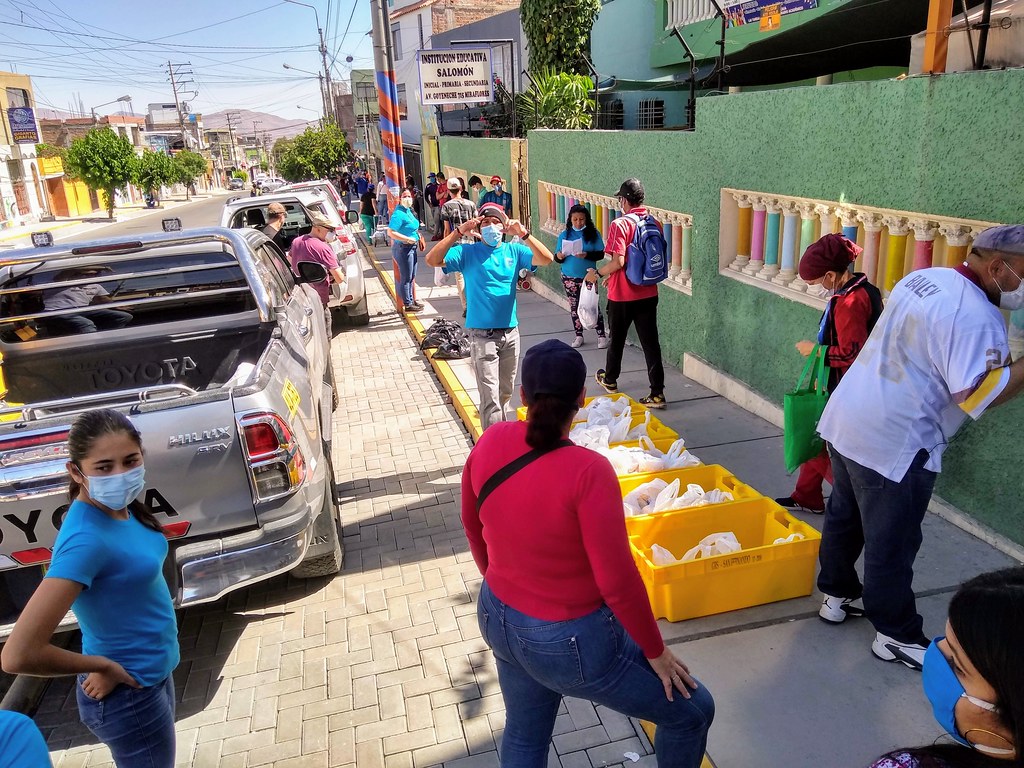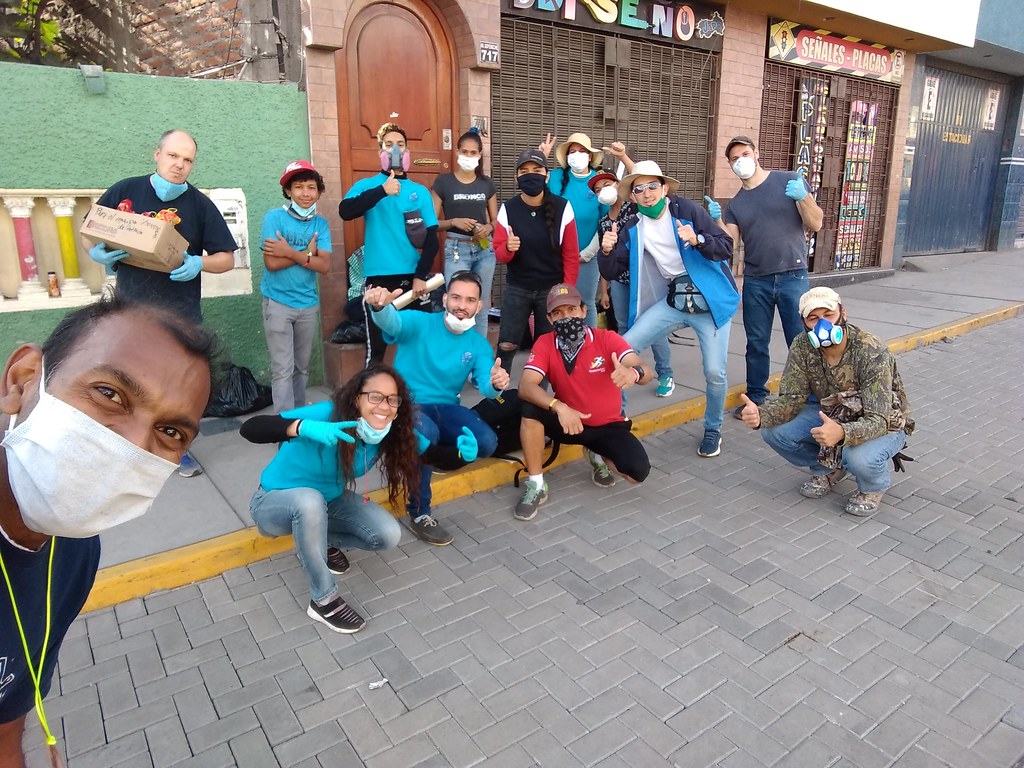How long does it take you to write a text message? Probably a minute at most. But imagine sending more than 1,000? On the off-chance your social circle was that large, the pace would be impossible for one person.
With four staff and 15 volunteers, the SIM Peru team in Arequipa only had a slightly better chance of contacting hungry families in their city each week, to distribute food packages and encouraging Bible material.
Many of those families were going without food due to the financial hardships of 2021 and along with Peru being a deadly COVID-19 hotspot and under military lockdown, their plight worsened.
SIM’s David Jeyachandran says: “Thousands of Venezuelan refugees in Peru, who normally made a living selling things on the street, were left without any source of income and our aim was to help them through this crisis.”
Using an Excel spreadsheet to register families’ details and notify and confirm distribution via individual texts, the team began delivering food parcels to as many as 300 people each week.
But as numbers grew — eventually hitting 3,000 — it became clear that such a manual approach was no longer adequate. At this point, David decided to draw on his roots as a software engineer and — assisted by volunteer web developers — build a simple online system.
Although the website has ‘no frills’, says David, it provides automated steps for the team to make it extremely accessible, especially for those on devices with low signals.
“The website allowed people to register online and place themselves on a map. It then helps us to allocate people to a food delivery point and send invitations via WhatsApp so people receive a message letting them know when and where to pick up food,” he explains.

Hosted for free and created by fellow members of his online crowdsourcing community for web systems, David says he couldn’t have made the website by himself — even if he’d worked for 20 hours a day.
Volunteers who pack and deliver the food also play a vital part in the project’s success — even visiting parks and other landmarks on foot to distribute supplies when bus services in the city stopped.
David originally came to Peru to do university campus ministry, not coding, but his previous experience opened doors to teach programming to students and work on SIM’s Latin American sites.
“Technology is a small part of any process, but without the website, the process would have been more complex and this was much less stressful for volunteers.”
By Tianna Haas
Please pray
- Praise God he uses the talents and past experiences of his people to bless the world and glorify his name.
- Give thanks for SIM’s food aid project to help Peruvian families in extreme need.
- For the online system to continue functioning smoothly and open doors to gospel-filled conversations.

